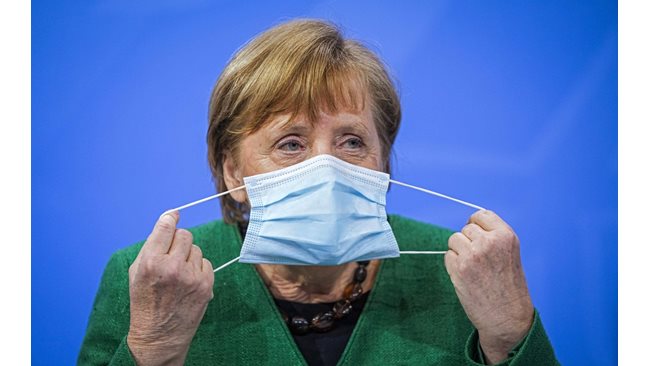Germany has extended strict measures to combat the coronavirus until 18 April
Germany closes all stores from 1 to 5 April
In the period from April 1 to 5, all stores will be closed, and only those selling groceries will have the right to open on Saturday, April 3, DPA reported. This was announced by sources who took part in the meeting between Chancellor Angela Merkel and the prime ministers of the 16 provinces, at which the extension of the lockdown introduced due to the coronavirus epidemic was discussed, DPA reported.

The meeting between Chancellor Angela Merkel and the prime ministers of the 16 provinces, at which the extension of the lockdown introduced due to the coronavirus epidemic was discussed
–
Closing all stores is an unprecedented step in the fight against the pandemic. So far, shops offering basic necessities have not been closed.
Only April 1st and 3rd are normal working days during the Easter holidays in Germany. The current lockdown is valid until March 28, but will probably be extended until April 18.
Germany has extended the current strict measures to combat the coronavirus until April 18 and is urging citizens to stay at home for five days during the Easter holidays. This was stated by Chancellor Angela Merkel, quoted by Reuters.
In talks that lasted late tonight, Merkel persuaded the leaders of the 16 provinces to abandon plans to gradually open up the economy, as agreed earlier this month. The reason is the sharp jump in the number of coronavirus infections.
“We are in a very serious situation now,” she told reporters at a news conference, adding that Germany was in a race against time to vaccinate its population against the coronavirus.
Germany began cautiously lifting some of the restrictions earlier this month. But the spread of more contagious variants of the virus has led to a surge in infections, raising fears that hospitals will soon be overcrowded unless new measures are taken.
The Robert Koch Institute of Infectious Diseases announced yesterday that the seven-day incidence per 100,000 people is 107, which is above the threshold of 100 people, at which the intensive care units will begin to be left without free beds. More than 3,000 people with COVID-19 are in intensive care units, according to data from Sunday.
“In fact, we have a new pandemic,” Merkel told a news conference. “We have essentially a new virus, obviously of the same type, but with completely different characteristics,” she said, adding that he was more infected and more deadly, the Associated Press reported.
Large family gatherings will be banned during the holidays. Only up to five people from two households will be allowed to meet. The government will ask churches to broadcast their services online so that people do not gather, BTA added.
Merkel and the prime ministers negotiated whether to ease restrictions on travel in the country during the Easter holidays. Germans can travel freely in a pandemic, but hotels and resorts are not allowed to welcome tourists. This practically means that the only option for those wishing to vacation is to go abroad. “We advise not to travel abroad,” Merkel said.
Airlines will have to test all passengers and crews before boarding the plane for Germany, regardless of the level of spread of the virus in the country of departure. However, there will be no mandatory quarantine for those returning to Germany – a relief for holiday destinations such as Mallorca, which rely on an influx of tourists during the Easter holidays.
In Germany, most stores have been closed since December 16. Restaurants, bars and entertainment venues have been closed since early November
– .


